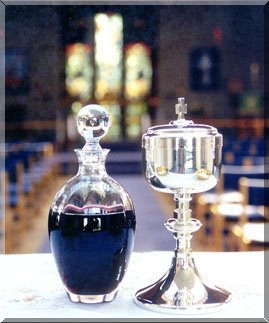Denying Christmas
 Without fail, every Christmas, the same tired old chestnuts are given an airing. There are the complaints about the commercialisation of the Festival - which seem to me to be as futile as bemoaning the coldness of ice. The modern Christmas we both celebrate and deny is as much an invention of the industrial revolution as the steam engine.
Without fail, every Christmas, the same tired old chestnuts are given an airing. There are the complaints about the commercialisation of the Festival - which seem to me to be as futile as bemoaning the coldness of ice. The modern Christmas we both celebrate and deny is as much an invention of the industrial revolution as the steam engine.And there are the secularists who shout to anyone who will listen that Christmas is a fraud. December 25th was not Christ’s birthday. Christians pilfered the winter solstice from the pagans and turned it into the festival of the Nativity. Clearly, there's some truth to this. What the old religion imperfectly glimpsed, Christianity brought into the full light of day. Now Christmas has become embroiled in the political correctness debacle. Even the Red Cross has banned Christmas cards from their catalogues for fear their neutrality might be compromised.
But cries of political correctness can’t undermine the true meaning of Christmas, because all the popular imagery of the greetings card - star, stable, shepherds - play a quite minor if evocative role in the story. Indeed, historians tell us that for the first three or four centuries of the Church’s existence, there was no Christmas Day. Apparently, the earliest Christians found no need to assign a fictitious date to Christ’s birth in order to anchor the incarnation within the calendar. They celebrated Christmas and Easter every time they met.
Christmas is about the arrival of the Messiah, and there’s an incident in the Gospel where the disciples of John the Baptist come to ask Jesus whether or not he is the Messiah. In his reply, Jesus never even mentions the circumstances of his birth.
Instead, He tells them to report to John that the blind see again, the lame walk, the deaf hear, lepers are cleansed and the poor are given good news. Their condition could be transformed by the coming of the Kingdom of God, which Jesus embodies - justice, peace and joy by the power of the Spirit brought within the range of all.
That’s the core theme of Christmas. The poet John Donne wrote, 'I need thy thunder, O God; thy songs no longer suffice me.' The danger is that we may be so mesmerised by the songs of Christmas that we fail to hear the sound of approaching thunder, as the Messiah inspires us to establish justice, peace and joy on the earth.
Think how the burdens of so many wonderful humanitarian agencies, charities, and missions could be greatly eased if this political as well as religious vision of Christmas could be realised.
Labels: Advent prayers, Anglican Advent Prayers, Big World Small Boat, History of Christmas, origins of Christmas, Why is Christmas on December 25





